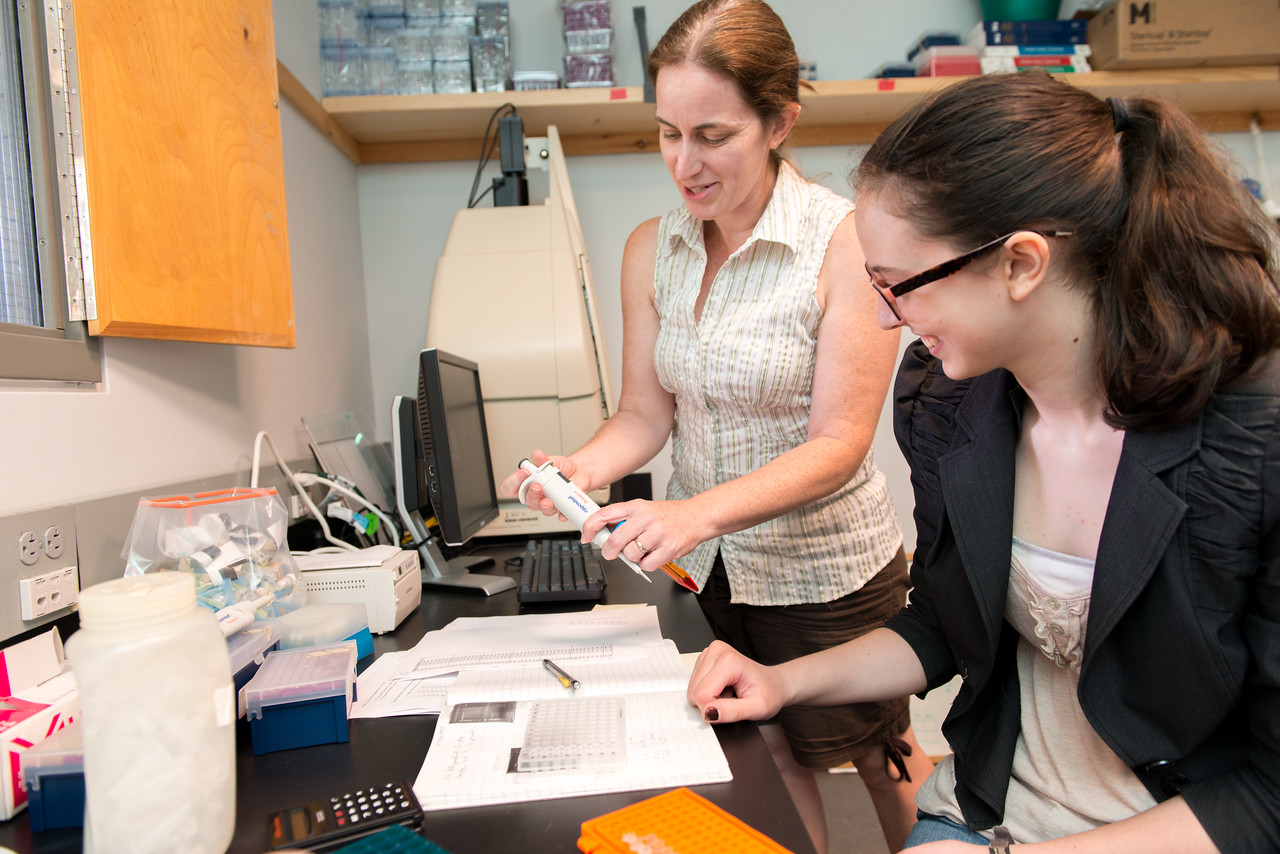- Home
- Academics
- Program Overview
- Center for Mind & Brain Studies
- Mind & Brain Studies Curriculum
Mind & Brain Studies Curriculum
Neuropsychology—the study of the workings of the mind and the brain and the relation between these two—is a field that draws from many different disciplines, including psychology, biology, philosophy, medicine, computer science, linguistics, among others.
Questions within the study of the mind and brain show the breadth of the field; these include: What are the neurological bases of consciousness? How can we understand, represent, and study the patterns (e.g., pulses or waves) of neural activity? What are the effects of trauma on neural network activity in the brain?
The Mind & Brain Studies Concentration, as outlined below, recognizes the value of interdisciplinary perspectives—especially at the intersection of psychology and biology—and outlines a course of study that includes courses from a variety of disciplines. The concentration begins with four prerequisite courses; the students then are encouraged to take courses on the underlying biological bases of neural activity, and the implications of brain activity for psychological and philosophical understandings of the human experience. At the advanced level, students are encouraged to continue to take courses examining both the biology and psychology of the mind and brain.
Curriculum
This interdisciplinary concentration has four prerequisite courses, listed below; these courses are intended to give students a foundation in the core areas associated with neuropsychology.
Prerequisite Courses
- Psychology 100 Introduction to Psychology
- Biology 100 Introduction to Biology
Additional Introductory Courses
- Math 110 Introduction to Statistics
- Chemistry 100 Chemistry I
Beyond the prerequisite courses, students are required to complete a minimum of six additional courses (for 21 additional credits); three of these need to have neuroscience as their primary focus (relevant courses are indicated with * below). Other courses with neuroscience as their focus within other disciplines (e.g., CMPT 364 Artificial Intelligence, CMPT 240 Robotics) can also be substituted, with approval of the moderation committee (and students should be aware that these courses may have associated prerequisites which will need to be completed).
Three Intermediate Classes
At least one must be in biology and one in psychology.
- Biology 201 Cell Bio
- Psychology 201 Introduction to Cognitive Neuroscience*
- Philosophy 212 Cognitive Science & Philosophy of Mind*
- Biology 276 Animal Physiology
- Psychology 202 Developmental Psych
- Psychology 231 Stereotyping and Prejudice
- Philosophy 225 Phenomenology & Existentialism
Two Advanced Classes
- Biology 331 Neurobiology*
- Psychology 325 Psychoanalysis & Cognitive Science*
- Psychology 332 Electromagnetism & the Brain*
- Biology 309 Animal Behavior
Required
- Sociology 309 Research Methods in Social Sciences
Additional Courses
Not required—but certainly encouraged—are courses in linguistics, the arts and humanities (e.g., ARTS 211 Interactive Arts Workshop; LIT 326 Compelling Forms: Early Modern English Literature and the Body) that may also connect and provide relevant and important perspectives on the working of the mind and brain. Also, students are encouraged to participate in at least one Applied or Research Internship. Examples of local internship partners include: The Austen Riggs Center; Fairview Commons Nursing Care and Rehabilitation Center; the College Internship Program (autism support program). On-campus internships are focused primarily on research in neurophysics and artificial intelligence.
Related Career Paths
Students with a concentration in Mind & Brain Studies may enter into fields and positions such as neuroscience, cognitive neuroscience, neuropsychology, neurophysics, clinical psychology, consulting, computer science, cellular biology, animal physiology, etc.
Internships
Students studying this concentration have done internships with Lifeworks Studio, Simon’s Rock Resiliency Research, Austen Riggs Center, and with faculty members in physics and psychology.
Course Spotlight

Biology 331: Neurobiology
An examination of the fundamentals of nervous system function, this course begins with the cell biology of neurons, and expands into an exploration of how nerves function as part of larger neural circuits. We discuss sensory systems for vision, pain, taste, sound and balance; the integration of nerve inputs in the motor system; and finally, higher brain function, including emotion, memory, behavior and language. We explore current literature on important topics including neurological damage and disease as well as neurological and psychiatric disorders.